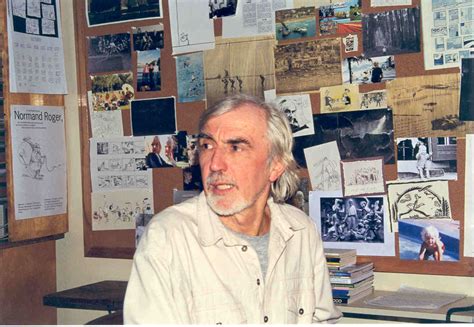A Quote by Fatih Birol
We are on track for a 3.5 deg C rise by 2040 (i.e. 4.2 deg C relative to pre-industrial)... When I look at this data, the trend is perfectly in line with a temperature increase of 6 degrees Celsius, which would have devastating consequences for the planet. We have 5 years to change the energy system, or have it changed
Related Quotes
The models that have been constructed agree that when, as has been predicted, the level of carbon dioxide or its equivalent in other greenhouse gases doubles from pre-Industrial Revolution concentrations, the global average temperature will increase, and that the increase will be 1.5 to 4.5 degrees Celsius or 3 to 8 degrees Fahrenheit... In Dallas, for instance, a doubled level of carbon dioxide and other gases like methane, would increase the number of days a year with temperatures above 100 degrees from 19 to 78 each year.
Each year we pump at least six billion tons of heat-trapping carbon into the innermost layer of our atmosphere, whose outer extent is only about twelve miles overhead. According to an IPCC (United Nations' Intergovernmental Panel on Climate Change) report released this year, atmospheric CO2 will, if the buildup is left unchecked, double from its pre-industrial level within the next century. That doubling of CO2 correlates with an increase in the global temperature of at least three to eight degrees Fahrenheit. The last ice age was just five to nine degrees colder than our current climate.
Diversity is a survival factor for the community itself. A community of a hundred million species can survive anything short of total global catastrophe. Within that hundred million will be thousands that could survive a global temperature drop of twenty degrees—which would be a lot more devastating than it sounds. Within that hundred million will be thousands that could survive a global temperature rise of twenty degrees. But a community of a hundred species or a thousand species has almost no survival value at all.
There's a lot of differing data [about global warming], but as far as I can gather, over the last hundred years the temperature on this planet has gone up 1.8 degrees. Am I the only one who finds that amazingly stable? I could go back to my hotel room tonight and futz with the thermostat for three to four hours. I could not detect that difference.
The industrial revolution fueled all of humanity, everything we do has been exploding ever since. It's been the biggest most impacting thing, not only for human beings in the last 250 million years, but also the planet, which caused the ice age, which buried the forest. It's this circle because of the industrial revolution, it's neither good or bad, it enabled all of modernization, extended our life, it changed everything. It's the most impactful thing that happened to the planet and the people.
Yet if you go to the supermarket and look at food that's produced through industrial agriculture, look at what's happened to the prices. Have they been going down? They've been going up and they will continue to go up. So the choice is either, do we hitch onto a system of agriculture that's doomed and will doom the planet with it, and go along the route of industrial agriculture, or do we want to shift to a kind of system that we know is going to be, in the long run, cheaper, because we'll have a planet left at the end of it? We need to factor that cost in.




































